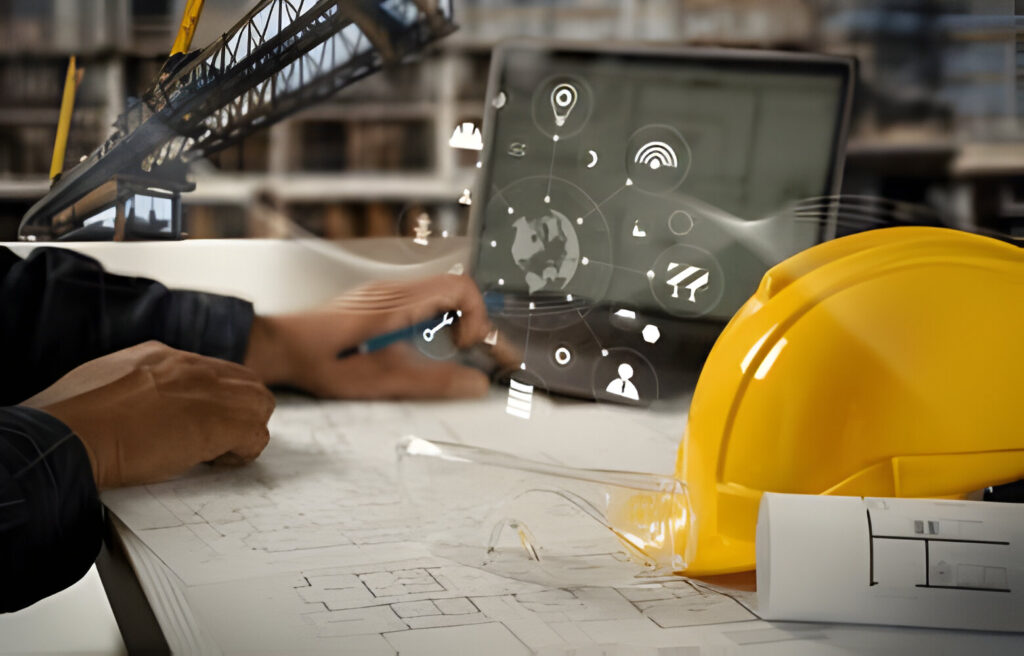In the dynamic world of construction management, where the pulse of progress beats with every project, staying ahead means embracing new technologies and methodologies. The AECO (Architecture, Engineering, Construction, and Owner) industry is at a transformative crossroads, where innovation isn’t just a buzzword but a crucial element shaping the future landscape.

Technology has become the cornerstone of modern construction management, offering unprecedented efficiency, precision, and sustainability. Building Information Modeling (BIM) has revolutionized project planning, enabling comprehensive 3D modeling and data integration for seamless collaboration across disciplines. Real-time project management software such as Procore and Autodesk Construction Cloud streamline communication and enhance project oversight, ensuring timelines are met and budgets are adhered to.

The Internet of Things (IoT) has ushered in a new era of connectivity on construction sites. Sensors embedded in equipment provide real-time data on performance and maintenance needs, optimizing resource allocation and reducing downtime. Wearable technology, from smart helmets to exoskeletons, enhances worker safety and productivity, mitigating risks and improving overall job site efficiency.

Artificial Intelligence (AI) and Machine Learning (ML) algorithms analyze vast amounts of data to predict project outcomes, optimize scheduling, and identify potential risks before they escalate. AI-powered drones conduct site surveys with unparalleled accuracy, while autonomous construction vehicles navigate job sites with precision, reducing human error and enhancing operational efficiency.

The future of construction management isn’t just about efficiency—it’s about sustainability. Green building practices, such as passive design, renewable energy integration, and sustainable materials sourcing, are becoming standard requirements rather than optional extras. Construction managers are increasingly adopting LEED (Leadership in Energy and Environmental Design) and BREEAM (Building Research Establishment Environmental Assessment Method) standards to ensure projects are environmentally responsible from inception to completion.

As the industry evolves, so do its challenges. From navigating regulatory complexities to addressing the skilled labor shortage, construction managers must continually adapt and innovate. However, these challenges also present opportunities for growth and differentiation. Embracing new technologies not only enhances project delivery but also attracts a new generation of tech-savvy professionals eager to make their mark in a forward-thinking industry.
Data is the new currency in construction management. Advanced analytics and predictive modeling transform raw data into actionable insights, enabling proactive decision-making and risk management. By harnessing the power of big data, construction managers can optimize resource allocation, improve project outcomes, and drive profitability.

In conclusion, the future of construction management is defined by its ability to innovate and integrate cutting-edge technologies. From BIM and IoT to AI and sustainable practices, the industry is undergoing a profound transformation. By embracing these advancements, construction managers can streamline operations, enhance safety, and deliver projects that not only meet but exceed expectations.
As we look ahead, collaboration across disciplines and a commitment to continuous improvement will be key to navigating the complexities of tomorrow’s built environment. By staying agile and adaptive, construction management professionals can lead the charge towards a more sustainable, efficient, and innovative future.
Join the conversation on the future of construction management—where innovation meets execution, and together, we build better.
© 2023 Created with Belco Republic Group